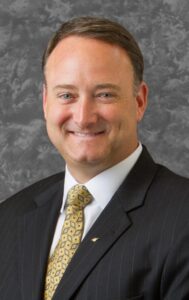[show-team limit=’2′ ids=’9875,9839′ layout=’grid’ style=’img-circle,img-white-border,text-center,img-above,normal-float’ display=’photo,position,name’ img=’90,90′]
Senator Josh Revak (R-Anchorage) recently stated in an Anchorage Daily News op-ed, “Alaska has and continues to be a shining example of responsible resource and energy development – where conservation and development have been proven to live in harmony; where stewardship of our lands, resources and environment is not falsely defined as mutually exclusive.” Senator Revak is not alone in this sentiment as this same assessment of responsible energy development is shared by many of Alaska’s political leaders. Governor Mike Dunleavy and Department of Environmental Conservation Commissioner Jason Brune have both stated this perspective.
If Alaska wants to remain an example of responsible energy development then it’s imperative to maintain robust environmental regulations and a strong frontline to oil spill prevention and response. While this is a key component to our state’s development future, over the last several years there has been a slow but steady erosion of Alaska’s ability to prevent oil spills, maintain adequate levels of readiness, and adequately respond should a major spill occur.
After the 1989 Exxon Valdez oil spill, citizens and the Alaska legislature worked diligently to ensure the state would be protected from the occurrence and consequences of major oil spills by enacting comprehensive laws and increasing regulatory oversight. These laws, and their related regulations, were based on real experiences and the lessons learned from the spill. Governor Dunleavy has himself noted that Alaska’s environmental standards for oil and gas development are widely considered among the best in the world.
The Spill Prevention and Response, or SPAR, Division within the Department of Environmental Conservation is charged with oil spill prevention, response, contingency planning, regulatory oversight, and other subjects related to the safe handling and transportation of oil and other hazardous substances. Since 2015, SPAR staffing has been reduced by 17 employees and the Governor’s FY2022 Operating Budget proposes cuts that would eliminate five more. The SPAR Division prevention and response work is funded primarily from a 5 cent per barrel surcharge on crude oil produced in the state and just under one cent per gallon surcharge on refined fuel products.
As throughput in the pipeline has decreased, so has the revenue to fund SPAR. This is the justification by the Dunleavy Administration for more cuts to the frontline agency charged with ensuring responsible energy development. While throughput may have decreased, the costs associated with adequate prevention and response systems have not.
If you can recall the images of oiled otters and sea birds, of oil spreading from the Exxon Valdez, then you know what is at stake and why these reductions must be prevented.
Fortunately, there is a remedy working its way through the Alaska Legislature. Section 5 of House Bill 104 proposes a half-a-cent increase to an existing revenue stream, the surcharge on refined fuels, in order to sustainably fund SPAR at existing staffing levels. This measure would preserve a level of protection and readiness in Prince William Sound, and the rest of the state, to help prevent a repeat of the devastation caused by the Exxon Valdez oil spill.
Given the solution presented through HB 104 and recognizing the importance of prevention and response work within the state, the finance subcommittee overseeing the budget for the Department of Environmental Conservation has restored the five positions proposed to be cut by the Dunleavy Administration. Hopefully as the budget and HB 104 move through the legislative process, legislators and political leaders who espouse Alaska’s example of responsible development will support these restorative actions for a fully functional SPAR Division.
With over 2,400 contaminated sites in Alaska and far fewer staff, the SPAR Division is having to make difficult choices about how to do less with less. Now is not the time to erode this essential, frontline prevention and response structure. The Council urges all legislators to support the small increase to the existing refined fuel surcharge and, equally important if and when HB 104 passes, encourages the Dunleavy Administration to maintain the FY2021 staffing levels within the SPAR Division. To do anything less would jeopardize the example our political leaders speak about, as well as the health and safety of our communities, economies, and environment.
Oped originally published in the Anchorage Daily News on April 3, 2021: Walking the talk on responsible energy development

